The commanding officer of the fast-attack submarine Scranton was fired in July after a relentless string of “disproportionate, loud and often toxic outbursts” directed at his crew over everything from the thickness of meat served in the galley and the stowing of coffee creamer to minor sailor missteps.
The caustic atmosphere aboard the boat during Cmdr. Seth Rumler’s eight months in command, which ended with his firing in July, demoralized the crew in a variety of ways.
Before his relief — amid a secretive and extended West Pacific deployment that wrapped Sept. 7 and covered 50,000 nautical miles — Scranton sailors reported a climate in which sailors were scared to bring bad news to the CO.
At one point, a sailor told investigators, Rumler ordered an injured sailor into an underway and criticized a chief who visited mental health before deployment.
A mantra of fear-based corner-cutting took hold among some crewmembers, where it was better to keep Rumler unaware than risk his wrath during the high-stakes deployment in an undersea domain where shortcuts can lead to dire consequences.
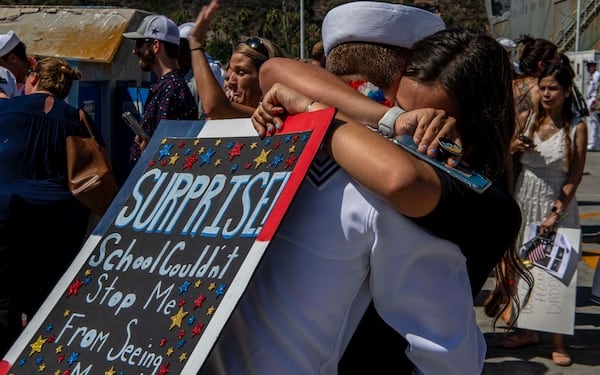
This report on the conditions aboard Scranton and Rumler’s subsequent firing is based on a redacted copy of a command investigation obtained by Navy Times via a Freedom of Information Act request.
Rumler could not be independently reached for comment and did not respond to a request for comment submitted through Navy officials.
“Several members of the crew describe the cost of failing to meet the CO’s expectations in terms such as feeling demoralized, destroyed, terrible or like trash; being verbally assaulted or being yelled at in a demeaning manner; or being immediately removed from watch,” the investigation states. “The command investigation revealed a climate on board the USS SCRANTON in which the crew fears the disproportionate, loud and often toxic outbursts of the CO.”
Rumler took command of Scranton in November, about a month after fellow submarine Connecticut ran aground in the South China Sea.
One sailor told investigators he feared Scranton would suffer the same fate.
“We are the next Connecticut,” the sailor warned. “We are not operating normally. We have department heads that are afraid to confront the CO. … People wait for the next trigger or flame spray (from Rumler) to publicly insult or yell at someone. Sometimes it is justified, but it often crosses a line to excessive.”
One junior officer recalled a peer saying they wanted to hurt themselves “just to get off the boat,” while others reported risking injury and cutting corners “because it was easier than getting permission (from Rumler) to execute the task.”
“I cannot say this boat can go out and be safe in the manner we are operating in now,” a member told investigators.
An August endorsement of the investigation by Rear Adm. Jeffrey Jablon, Naval Submarine Force Pacific commander, directs further inquiry into whether there were any “leading indicators” about the fired CO during prior screening levels.
That probe remains underway, according to SUBPAC spokesperson Lt. Cmdr. Amelia Umayam.
Rumler did not face additional disciplinary action following his relief, she said.
“The overwhelming majority of our submarine commanding officers are doing outstanding work, leading their crews on challenging missions around the world every day,” Umayam said. “The responsibility of command is not taken lightly, and the leadership and guidance provided by command triads is essential for the success of their units and their Sailors.”
The Scranton stood out for all the wrong reasons.
“Multiple Sailors reported that (Scranton) is the worst command they have ever been assigned to,” the investigation states. “One Sailor reported that he believes in order for a submarine to operate in a safe and effective manner you need a crew who trusts the CO and he reported he did not know many sailors who trust him.”
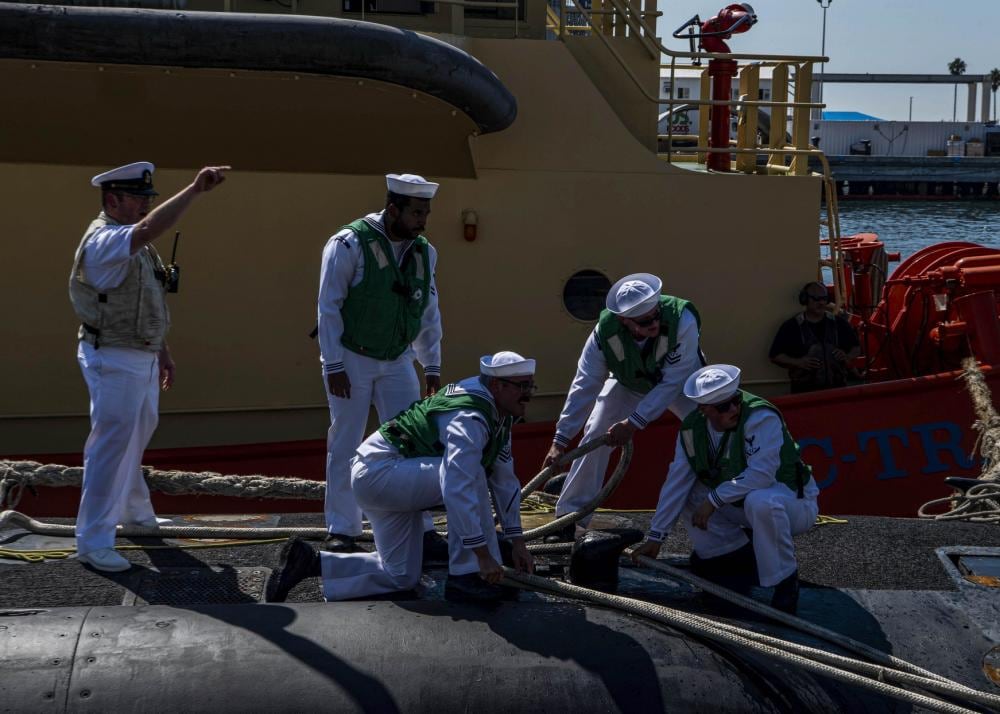
A CO’s ‘toxic and caustic’ reactions
Rumler might still be in command today if hadn’t been for a fed-up Scranton sailor who filed a formal complaint that led to the command investigation.
That sailor’s name, and the names of other crew members, are redacted in the investigation copy provided to Navy Times.
At one point, Rumler allegedly blew off a recommendation that a crewmember who had injured his shoulder be taken to U.S. Naval Hospital Guam for further evaluation.
“The CO directed the Sailor to be taken underway and his arm put in a sling,” the investigation states.
While underway, that sailor could not don an emergency air breather by himself.
Later in the cruise, when the injured sailor was finally seen in Guam, he was found to have torn his rotator cuff and had to be medically evacuated to San Diego.
“One Sailor stated there is a perception that the CO has precluded personnel from receiving medical or other support services in order to keep them onboard for mission tasking,” the investigator wrote.
RELATED
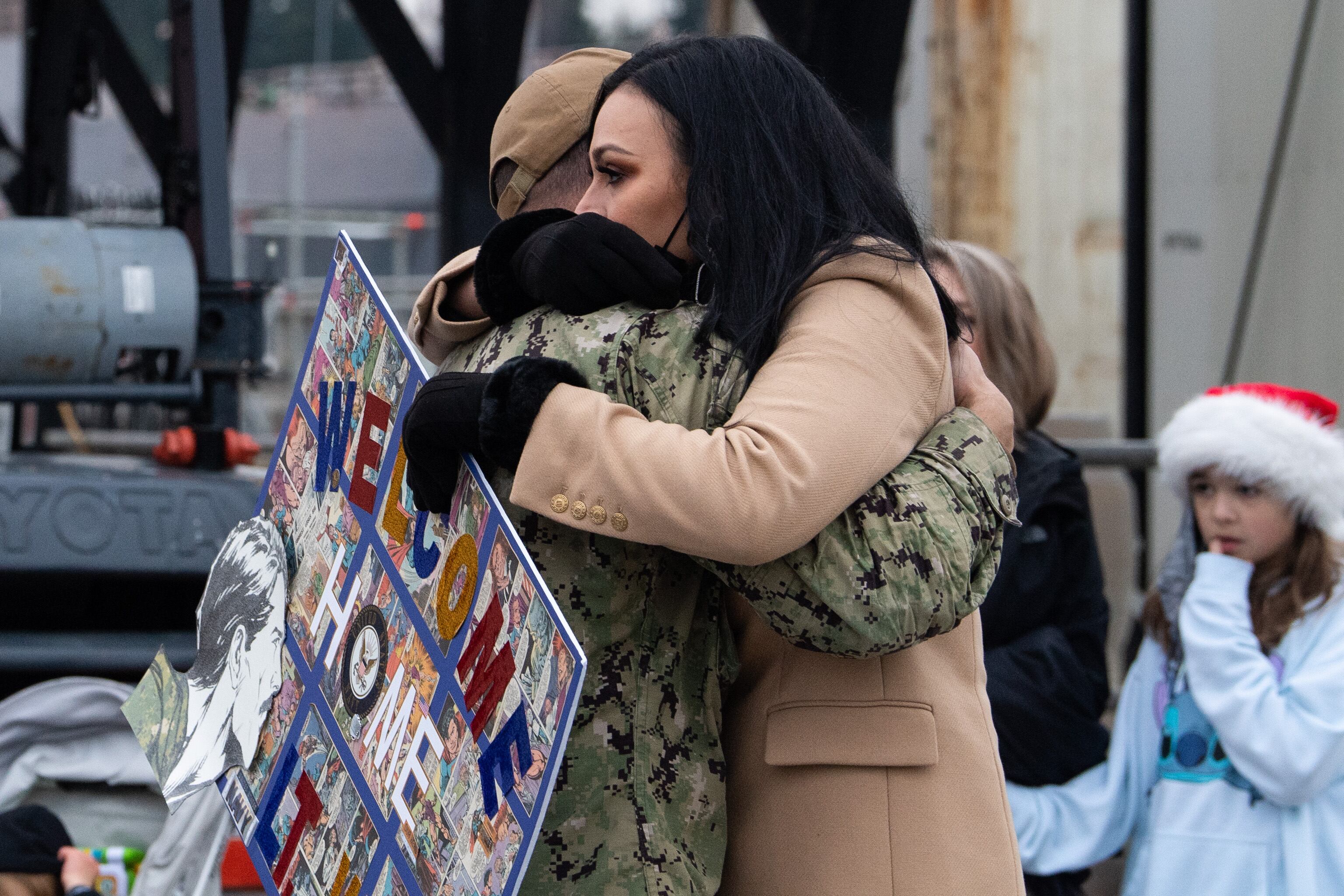
Sailors reported Rumler keeping them at work late for things that could have waited, running brutal duty sections over the holidays and keeping the engineering department working overnight the day before deployment due to miscommunication over a piece of equipment.
Several crew members reported that Rumler’s outbursts in response to mistakes were “significantly less severe” when external riders were onboard.
The investigation found that Rumler often had “unclear and unrealistic expectations” for his crew, and that he dismissed feedback.
“The crew of Scranton is a well-trained crew and eager to continue their work on this deployment, but they are stifled, fearful or reluctant to provide recommendations or feedback to the CO, to the point at which watch officers often make selective reporting of problems found and corrected on their watch to avoid the reaction of the CO,” the investigation states.
Some Scranton sailors described themselves as a “moving target” who only learned about the CO’s standard when they failed to meet it, and that they were often not told the “why” behind them doing something wrong.
“There were multiple examples of situations where the CO has overreacted to events on the ship in a toxic and caustic manner which has instilled a fear into the crew, and limits almost all forceful backup,” the investigator wrote.
As news of several suicides among the crew of the aircraft carrier George Washington echoed across the Navy this spring, one Scranton member proposed an anonymous mental health survey “based on the extended duration of the current underway period.”
Rumler and his chief of the boat, Master Chief Torpedoman’s Mate Luis Gomez, exchanged emails in May about the proposed survey, and the chief “was reluctant to implement the survey based on fear that Sailors would use it to get off the boat,” the member told investigators.
“The (chief of the boat) was not totally against it, but wanted to discuss further with the CO,” the investigation states.
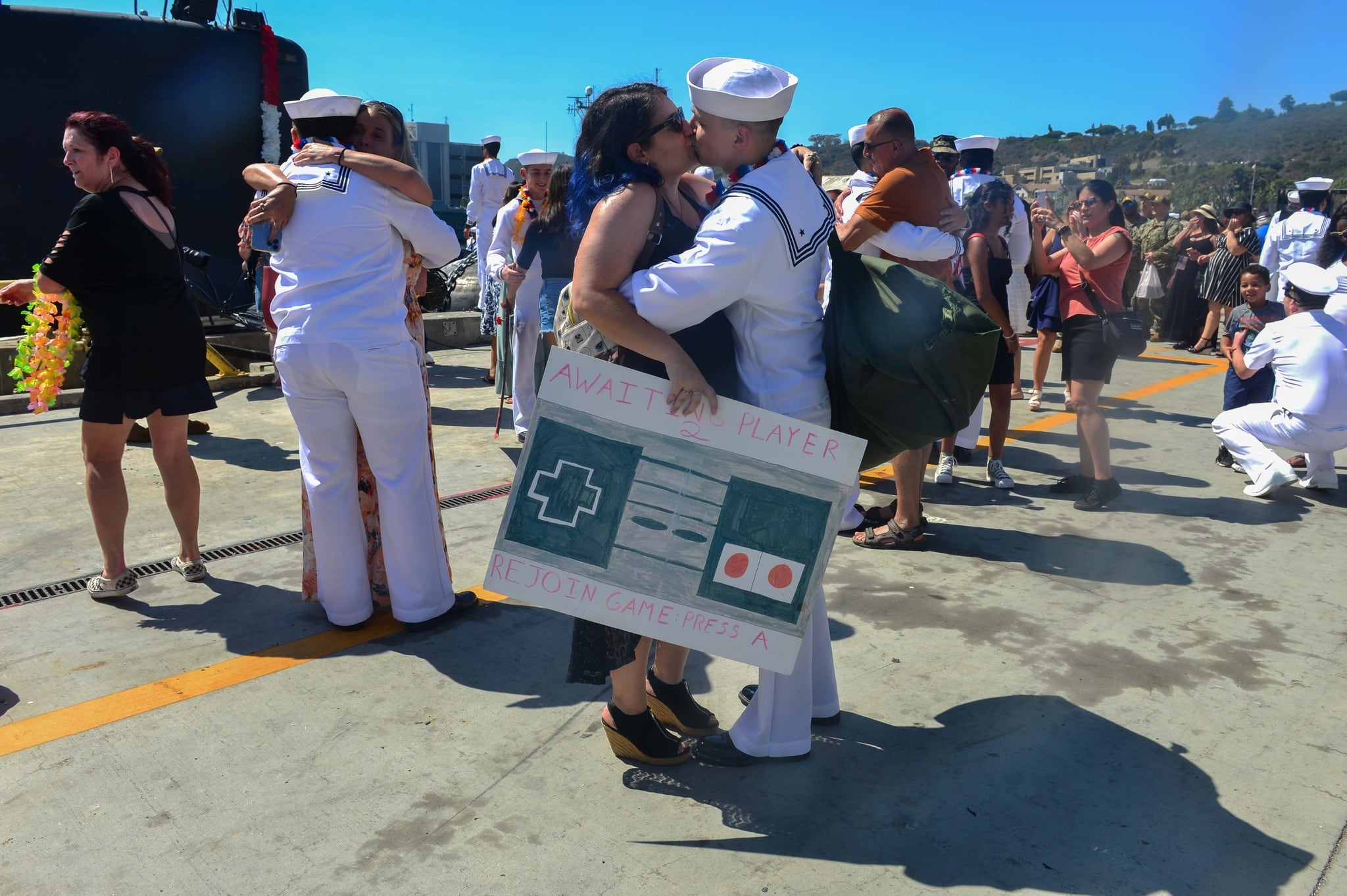
When interviewed on July 1, Rumler said he had not seen the draft survey, according to the probe.
Before Scranton’s deployment, five sailors had gone to the emergency room for reasons that are redacted in the released investigation.
A member described Rumler’s demeanor as “frustrated that these Sailors were in the hospital and not back on the ship continuing their work.”
“Although the CO did not direct such an action, the (member) perceived the CO’s desire was for him to go to the hospital to take the Sailors from the medical facility and bring them back to the submarine,” the investigation states.
The botched creamer evolution
The cooks aboard Scranton were particularly subject to Rumler’s outbursts, the investigation found.
Rumler at one point ordered the cooks to “conduct a critique regarding why roast beef was sliced thicker than normal.”
“The slicer had gone out of commission on the deployment and so they were slicing the roast beef by hand,” the investigation states.
On a day when white bread was not available for breakfast, Rumler woke up a sailor “and yelled at him for not having white bread.”
One crewmember reported how, in the past, culinary specialists, or CSs, would score coffee creamer and then allow each division to store it in their spaces because there was no room in the kitchen or galley.
But the creamer caused contention when a sailor got on the ship’s intercom and announced the pickup time for creamer.
RELATED
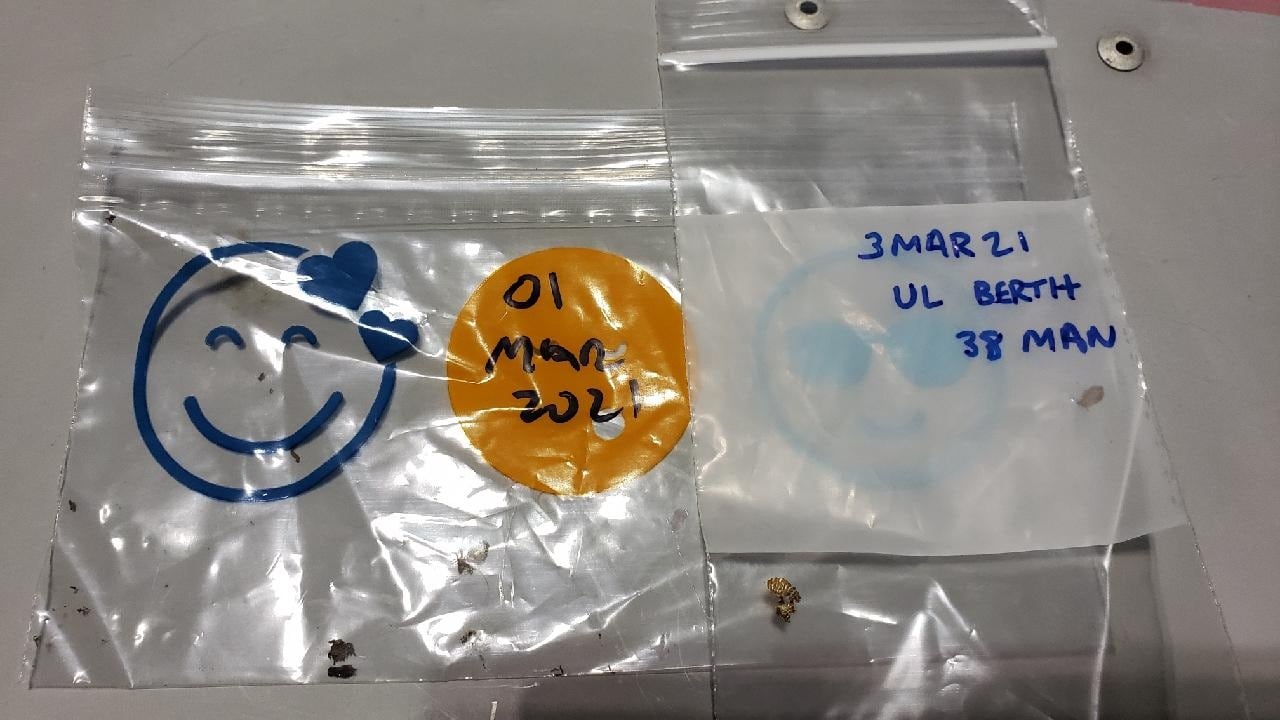
“After hearing this, the CO called the (sailor) to his stateroom and yelled at him for not briefing this to him in advance and because he did not want to see creamer stored throughout the ship,” the investigation states. “He canceled the evolution. The creamer had to be thrown away because the CS division lacked space to store it centrally.”
Culinary specialists loaded the boat with all the provisions needed for deployment and had planned out food service to ensure the stocks would last, only to be told by Rumler that they needed to schedule “four one-hour pizza nights and bake bread daily to be available as a snack.”
“Members of the CS division stated that the CO was dismissive when the division attempted to provide feedback that these changes would impact sustainment,” the investigation states.
The cooks also recalled being criticized by Rumler for a trash can not being empty—it had two candy wrappers in it—and for not having peanut butter and jelly sandwiches available for every off-going watch.
Assorted indignities
Sailors described how Rumler’s attitude and actions made the hard life of a submariner unnecessarily harder.
Rumler mandated that the ship have two duty sections on board whenever welding or hot work was being performed, a requirement that exceeded Navy requirements.
As a result, sections were kept onboard until 8 p.m., a leadership decision “that was especially impactful during Christmas stand-down period,” the investigation states.
In one incident, a sailor recalled how Scranton had received more than 20 pallets of parts and finished bringing them aboard by about 8 p.m.
RELATED

“The CO and (chief of the boat) did a walkthrough for the entire ship and when they inspected the (logistics specialist) office there were still many parts in laundry bags that would take about two weeks to stow because of the amount,” the investigation states. “The CO ordered (logistics specialist) division to stow them all that night.”
One junior officer “could not remember a day where somebody has not been yelled at for something fairly minor and inconsequential.”
“People get called back into work regularly at 2000 or 2100 for things that could wait until the next day,” the investigation states. “(The junior officer) reported personally having worked over 50 days a row in-port.”
In one instance, Rumler called one officer of the deck a “stupid m---f----” when the watch team was executing a maneuver.
In another, Scranton’s entire engineering department was forced to come in and perform inventories the night before their deployment.
This happened because a piece of test equipment had been left behind on the ship and was scheduled to be picked up the morning of the underway.
According to the investigation, the Submarine Squadron 11 commodore had asked Rumler about the equipment and the CO was unaware.
“Many members of the engineering department remained on board all night the night before deployment and were in the chow line for breakfast the next morning,” the investigation states. “There was only one CS on duty who was focused on serving the engineering department as well as the duty section.”
A cook had failed to make fresh coffee in the wardroom that morning, and when Rumler found out, he ordered that two cooks had to be on duty at all times while the boat was in port, even though the CS division only had four sailors.
The ship’s second-in-command, Lt. Cmdr. Ekon George, told investigators that Rumler would regularly press down and hold a buzzer in his stateroom that connected to the control room, resulting in “extended buzzes which has a noticeable effect on stress level.”
In January, a “verbal altercation” between Rumler and George was so loud that it could be heard through the forward compartment and into the chief quarters.
One chief went to investigate and had to separate the two officers, who were arguing about deficient paperwork, according to the investigation.
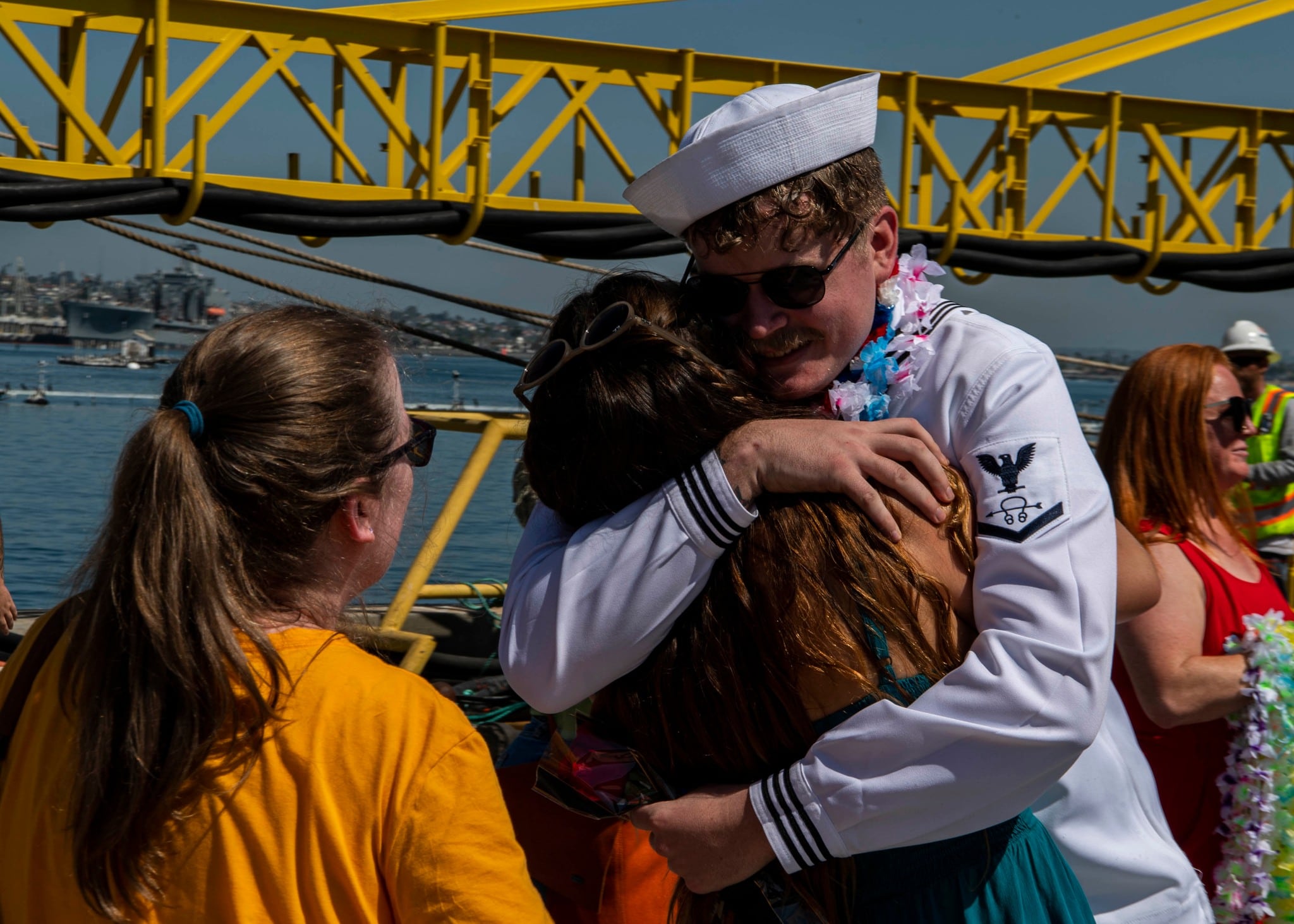
‘Appeasing the CO’
Rumler’s critiques terrorized some crew members, and there was “no rhyme or reason” to his relief of entire watch teams, which messed up sleeping schedules and the plan of the day, according to crew members.
“Operational plans are often developed based on what the crew feels is appeasing the CO vice accomplishing the mission,” the investigation states.
Watchstanding on Scranton also became a harrowing experience under Rumler, sailors told investigators.
Several engineering duty officers reported that they were “dissuaded” from reporting things to the CO and did not report minor problems because of Rumler’s potential reaction.
“Several crew members perceive the CO’s motivation for critiques is to exact punishment or ridicule rather than identifying root cause and performance improvement,” the investigation states. “One (junior officer) reported that communication is not very great and that often the team finds out about things last minute on numerous occasions which makes it very stressful to get told something last minute and then get in trouble for why the crew was not prepared or on time.”
The investigation suggests mistakes were unforgiveable, humiliating experiences for younger sailors, instead of opportunities for them to learn and grow.
One sailor was on lookout during a surfacing evolution, and it took him several minutes to open the upper bridge access hatch because it was stuck.
He eventually got it open and started to rig the bridge, only to be relieved by a shipmate because Rumler had disqualified him over how long it took to open the hatch.
During Rumler’s command, multiple officers fell behind on qualifications, and there were only four submarine qualified junior officers in the wardroom.
He had not qualified any JOs since taking command, according to the investigation.
One junior officer recalled going before a submerged officer of the deck board on two hours of sleep and having Rumler end the board as a failure after the junior asked for clarification of a question he did not understand.
One member had two petty officers lead a training session since they had recently done poorly on a monitored evolution.
According to the member, the thought was to turn these two petty officers into experts on this maintenance job.
Instead, Rumler belittled his subordinate for having “the two dumbest kids in the class become the professor.”
The subordinate recalled being upset by this because it was not how he was trained to act as a leader.
Geoff is the managing editor of Military Times, but he still loves writing stories. He covered Iraq and Afghanistan extensively and was a reporter at the Chicago Tribune. He welcomes any and all kinds of tips at geoffz@militarytimes.com.




